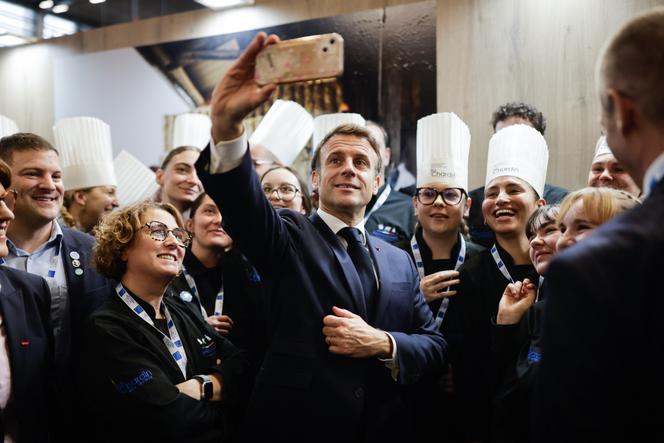


Domestic appeasement, and serious concern on the international front. With a lengthy visit to the 61st Salon de l'Agriculture on Saturday, February 22, Emmanuel Macron sought to reap the benefits of the event's opening day that went off without a hitch – unlike last year – while multiplying warnings about international tensions and fractures and their possible consequences.
"Tomorrow, there is no guarantee that food won't become a weapon, therefore, our responsibility is to produce on our soil what enables us to feed ourselves and our children," warned the French president, underlining the geopolitical dimension of the sector, from the war in Ukraine and its effects on grain and chicken exports, to Trump's election and his threats on tariffs, to future free trade agreements with Mercosur, perceived as a direct threat by a large part of the farming world.
On the domestic front, the president followed in the footsteps of the FNSEA-Jeunes Agriculteurs (JA) farmers' union alliance. The historic union had made "common sense" its slogan for the elections to the Chamber of Agriculture in January; Macron used the same formula to call for the defense of a French model "in transition." With more than just a nod, the president has adopted the productivist rhetoric of the historic union, which has co-managed the sector with the Ministry of Agriculture for 80 years. "We have to produce and take responsibility for producing to feed and also to export," urged Macron. That kind of rhetoric will certainly satisfy the FNSEA-JA tandem, which still holds a majority despite the strong surge of the far-right Coordination Rurale union in the Chamber of Agriculture elections earlier this year.
You have 67.5% of this article left to read. The rest is for subscribers only.
